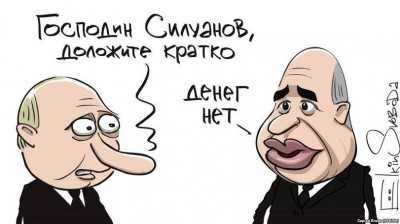
All transfers of currency from Russia and to Russia and inside the country will be carefully considered.
The Central Bank plans to oblige lenders to provide detailed information about the foreign exchange remittances of citizens, committed without Bank accounts – who translates, how, where, and for what purpose. This is stated in the explanatory note to the draft guidelines of the Central Bank, which is posted on the official website of the mega-regulator. The document is still under discussion – all additions will be accepted until March 9, 2016. Earlier data on currency translation, in fact, remained within the Bank and provided only on demand.
Innovation can also be reflected on ordinary citizens. If today when transferring money customers do not always ask about the purpose of this activity (this question is asked at the request of the Bank), in the future this procedure may become mandatory.
In 2015, the total volume of remittances from Russia decreased by 53% compared to 2014, but the amount is still impressive. During the year individuals have been transferred out of our country 9,72 billion. While the vast majority (7,98 billion) was accounted for by transfers to the CIS countries.
“Now the detailed information that banks do not submit. As a result it is impossible to separate the faithful from other translations that carry possible criminal in nature”, – told “RG” the President of Association of regional banks Anatoly Aksakov.
It’s one thing for a child’s education, for example, money to transfer, and the other, for example, tourist services, which in practice may be of the order of to the criminal element, says Anatoly Aksakov. In his view, innovation is, of course, for the banks will create an additional burden. You have to spend money on new software. But “you can go the other way, for example, closely control the types and criteria of suspicious transactions by currency.
How about this?
Eugene Cartago, Chairman of the Collegium of advocates “starinsky, Cartago and partners:
– Innovation can strike in the first place in the most active layer of the Russians – the middle class. One example given by Anatoly Aksakov about tourist services, initially suggestive. Imagine if your actions directly book hotels abroad will cause issues, and banks, in the best case – to require explanation, in the worst – block transfers. Transfers of currency in online shopping on foreign websites aggregators can also fall into the category of questionable. There is reason to fear that under close attention will be the identification of “doubtful” transactions of individuals.
– With so many currency transfers without opening an account, committed in Russia, it is difficult to assume that banks will be able to check the accuracy of the information, even improving their software products. If you monitor the remittances of migrant worker family, it is unclear where their money is going. So, you need a more complex analysis of the behavior of individuals in the chain. In order for the new CB rules were no profanity, you will most likely need to tighten the requirements to the translations, not just to specify and to prove payment. It turns out that by sending mom to Kazakhstan money, to ensure that the money goes to destination, from you, for example, will require a birth certificate. Unfortunately, regulation is never free: it’s all expressed in growth fees for services, the care of the translation in gray and black sector.
Dmitry Sorokin, scientific Director of the Financial University under the government of the Russian Federation:
-My wife and each month we transfer to Tbilisi to her parents of $ 100. No problem – let the banks about this report. The whole world in the end is towards the opening of Bank secrecy. But the Central Bank is not bogged down in the volume of information, it is wiser to set the cut-off price of remittances. And the main thing – to draw attention to the fact that today funds for these or other stocks are going through social networks and well-wishers can use “blindly”. Every 100 dollars, and now a million dollars.








